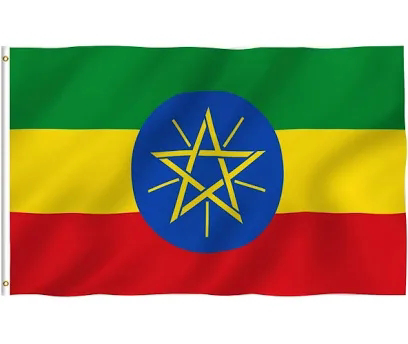The Tigray People's Liberation Front (TPLF), once a dominant force in Ethiopian politics, has witnessed a dramatic decline in its central authority and capacity to influence its satellite organisations. As an organisation of the party, I observed internal dynamics and systemic flaws that ultimately eroded the TPLF’s foundational strength. These issues were not just political miscalculations—they reflected a deeper governance crisis more profound in ideology, management, and detachment from the people.
1. Failure to Govern Through Principles of New Public Management
One of the most glaring weaknesses of institutions using the New Public Management (NPM) principles. NPM emphasises efficiency, professionalism, and accountability through hands-on, expert-driven leadership. Instead, the party continued to cling to rigid, bureaucratic models staffed by individuals selected for their loyalty rather than competence. This stifled innovation, undercut institutional performance, and distanced the government from results-based governance.
2. Misinterpretation and Misapplication of the Constitution
Ethiopia's constitution was drafted to reflect the tenets of liberal democracy—pluralism, decentralisation, and decentralisation of individual rights. Yet, in practice, the TPLF implemented a model closer to Chinese-style democratic centralism. This authoritarian mode of governance suppressed dissent discouraged decentralisation and blurred the line between party and state. The constitutional framework became a symbolic tool rather than a living document guiding democratic governance.
3. Lack of Systems Thinking and Institutional Capability Building
Democratic governance requires more than good intentions; it requires building resilient systems. The TPLF showed a chronic inability to adopt systems thinking, a strategic approach emphasising interdependence, feedback loops, and long-term planning. Rather than nurturing democratic institutions, the party preferred ad hoc solutions and reactive measures, undermining state-building efforts and institutional trust.
4. Party Loyalty Over Expertise
Appointments within the TPLF-led government were primarily based on loyalty to the party rather than professional merit or expertise. This patronage system may have guaranteed short-term political obedience but proved disastrous in the long run. Institutions became echo chambers, deprived of critical thinking and expert insight. Technocrats and reform-minded professionals were marginalised, contributing to policy stagnation and public disillusionment.
5. Rhetoric of False Performance
The TPLF relied heavily on the narrative of its past victories—particularly its role in overthrowing the Derg regime and fostering development. However, this glorification of past achievements often came at the expense of a sober assessment of present realities. The party’s self-congratulatory rhetoric ignored the complex, evolving needs of the Ethiopian people and failed to inspire credible visions for the future.
6. Detachment from Public Demands
Perhaps most importantly, the TPLF grew increasingly disconnected from the people. The leadership failed to understand and respond to nationwide citizens' diverse demands and interests. Protest movements, youth discontent, and regional grievances were either ignored or met with repression, further alienating the public and eroding the TPLF’s legitimacy.
Conclusion
The fall of the TPLF’s central power was not the result of a single misstep but a culmination of strategic, ideological, and organisational failures. The lack of expert-driven governance, the distortion of constitutional principles, and a detachment from the public will all contribute to the party’s weakening grip. To build a better political future, Ethiopia must learn from these mistakes—prioritising meritocracy, institutional development, democratic integrity, and, above all, the people's voice.
2/Lessons for the Prosperity Party: Avoiding the Pitfalls of the Past
The fall of the TPLF from central power offers a critical case study for Ethiopia’s current ruling party—the Prosperity Party (PP). If the PP is to maintain legitimacy, stability, and public trust, it must deliberately learn from the systemic failures of its predecessor. Here are the core lessons it should take to heart:
1. Meritocracy Must Replace Political Loyalty
One of the most corrosive elements of the TPLF’s governance was the preference for party loyalty over professional expertise. The Prosperity Party must reverse this trend by establishing a merit-based public service system that values knowledge, competence, and integrity. Professionals—not loyalists—should be at the forefront of public administration, policymaking, and institutional leadership.
2. Constitutionalism Requires Practice, Not Just Rhetoric
The Ethiopian constitution cannot remain a symbolic document. Prosperity Party leaders must commit to constitutionalism in both spirit and practice. This means respecting federalism, guaranteeing individual and collective rights, ensuring judicial independence, and avoiding the centralisation of power under a party elite.
3. Adopt Systems Thinking and Long-Term Governance Vision
Governance is not about short-term fixes or reactionary measures. PP must embrace systems thinking—designing policies and institutions that are interlinked, resilient, and forward-looking. This includes investing in education, public health, decentralised governance, and responsive service delivery.
4. Build Institutions, Not Personalities
TPLF’s governance model was often personality-centered, creating power vacuums when strong individuals fell from grace. PP must instead focus on building strong institutions that function independently of any single leader. This includes strengthening democratic institutions like parliament, the judiciary, electoral boards, and independent media.
5. Engage with the People—Continuously and Honestly
TPLF’s failure to listen to and engage with the public's demands accelerated its downfall. The Prosperity Party must create continuous, structured, and genuine platforms for civic participation. This means empowering local governance, encouraging public dialogue, and responding transparently to grievances.
6. Avoid the Trap of Mythologizing Past Achievements
Just as the TPLF leaned heavily on its liberation legacy, the Prosperity Party must be careful not to rest on its own political victories or early reforms. Governance must be future-oriented, rooted in performance, delivery, and citizen satisfaction—not nostalgia or political myth-making.
Final Thought
The Prosperity Party stands at a crossroads. It can either replicate the ideological rigidity, managerial shortcomings, and public detachment that led to the TPLF's downfall or embrace a new inclusive, accountable, and expert-driven governance model. The choice will determine the party’s fate and the future of Ethiopia’s fragile democracy.

No comments:
Post a Comment